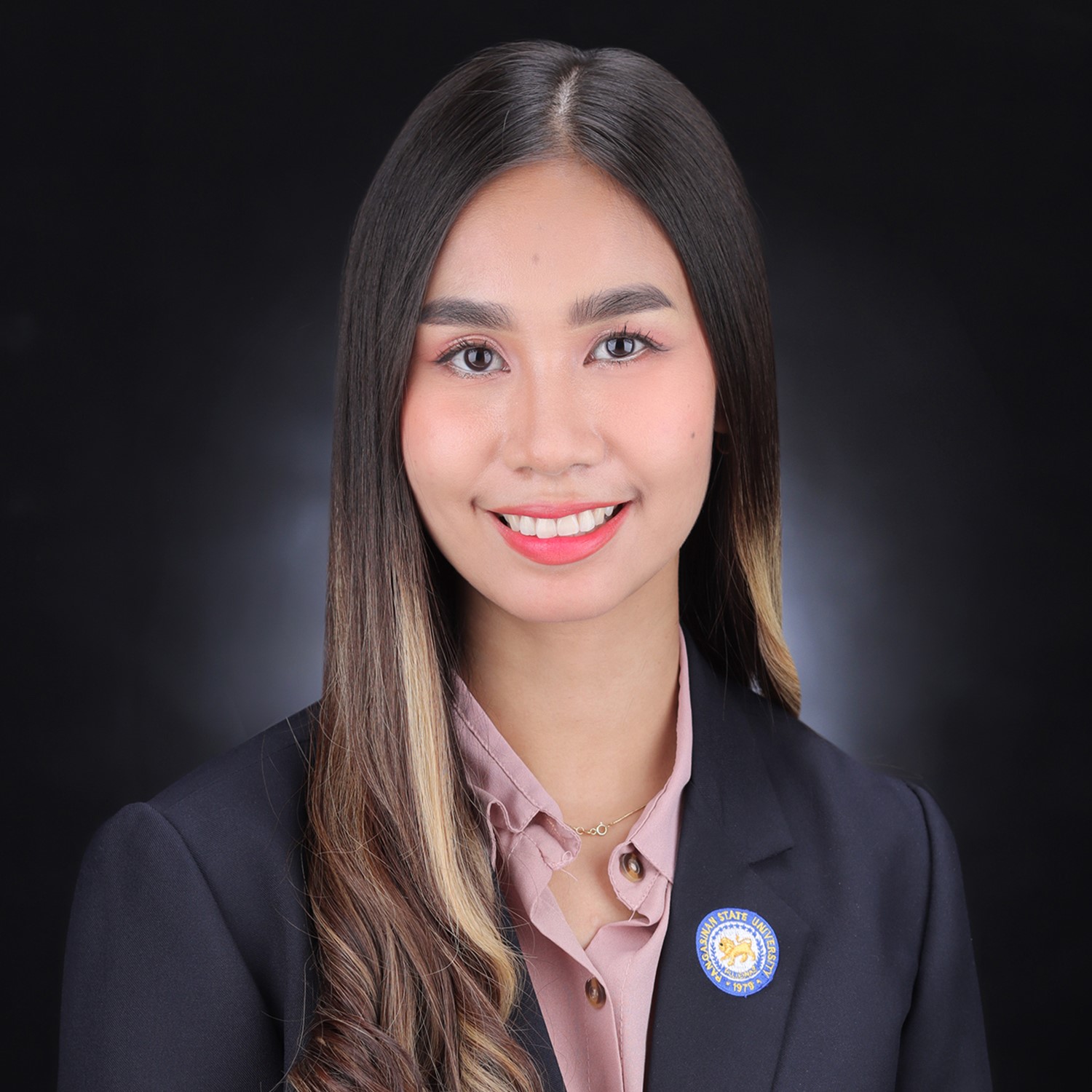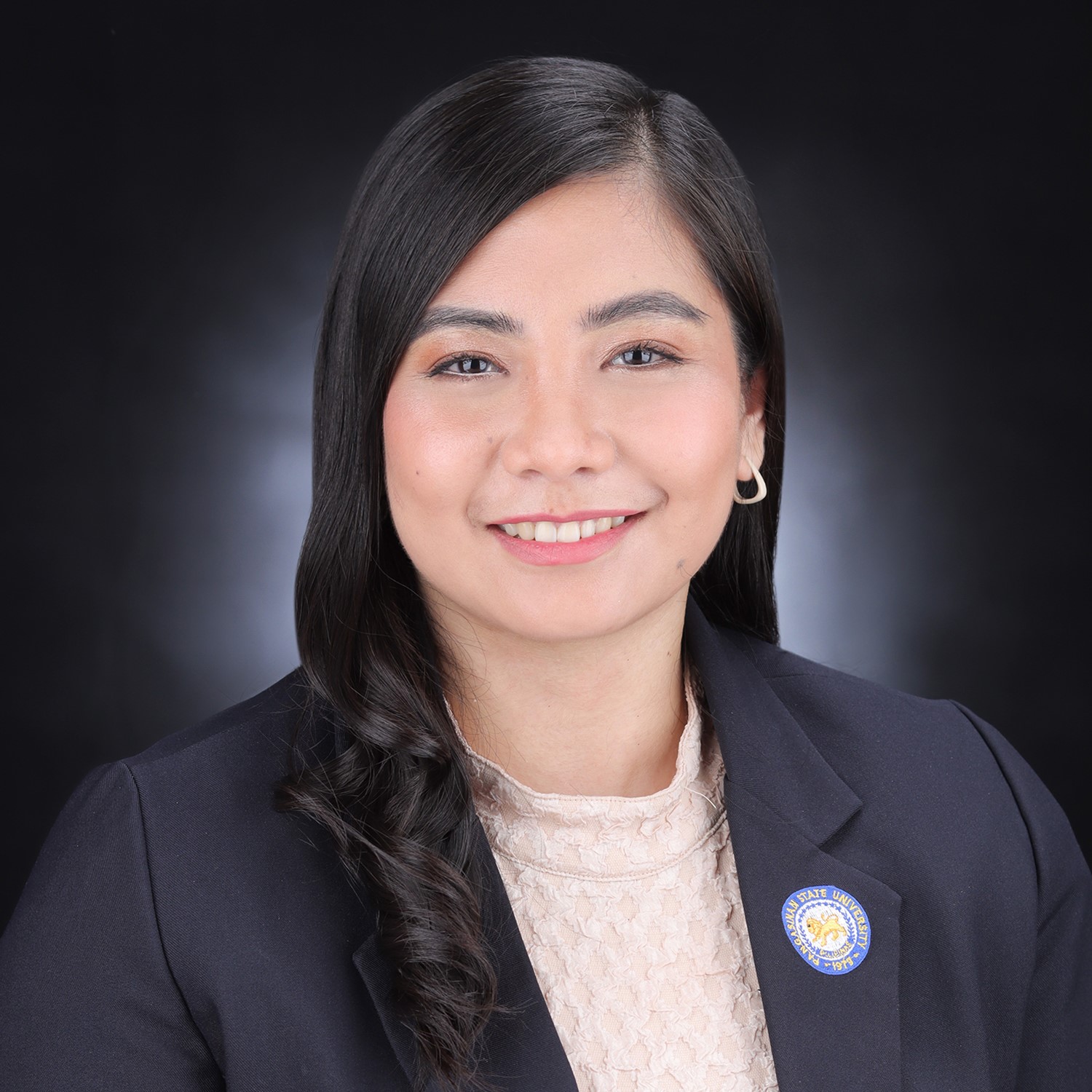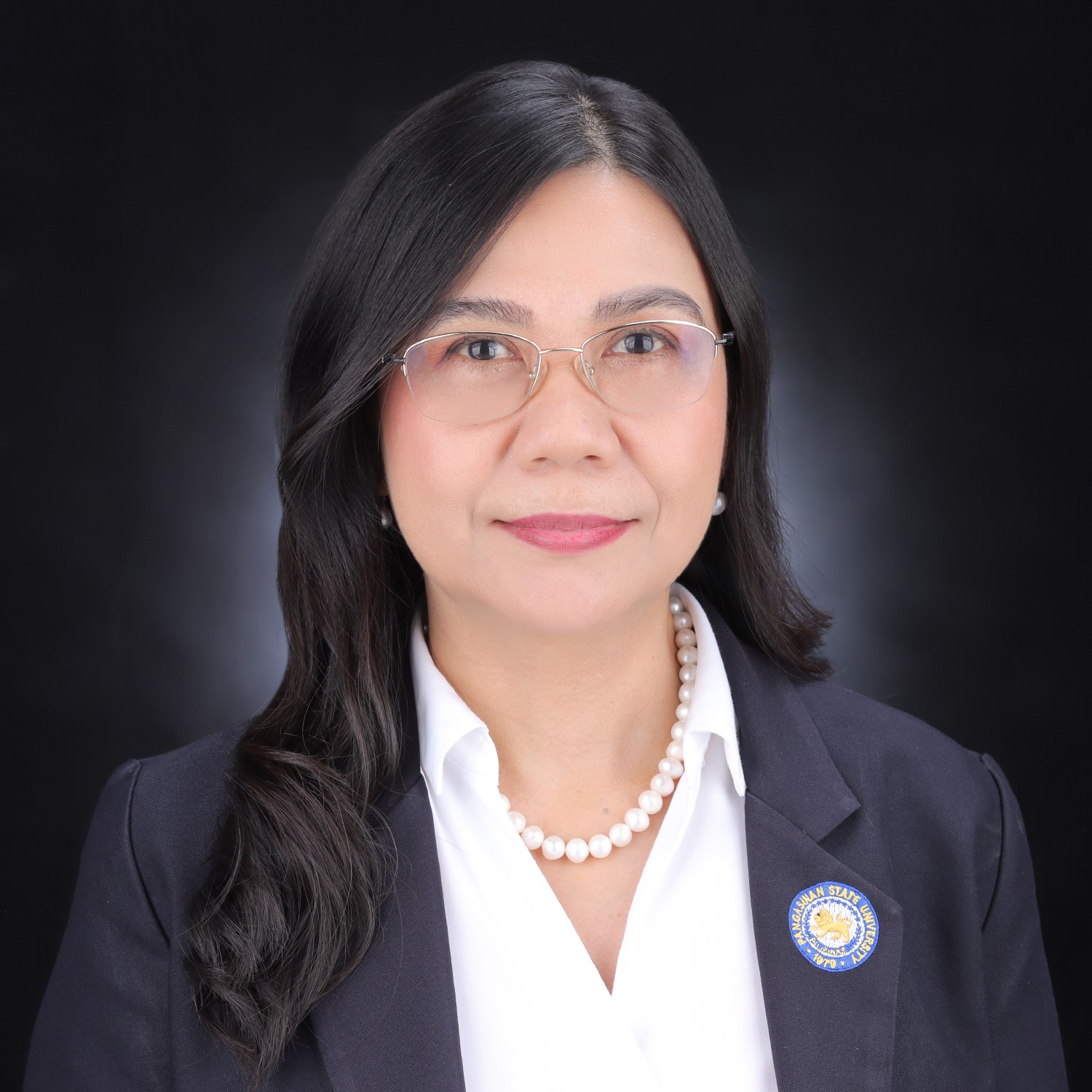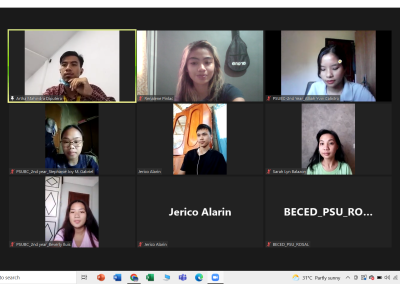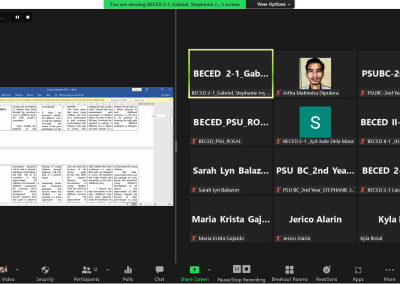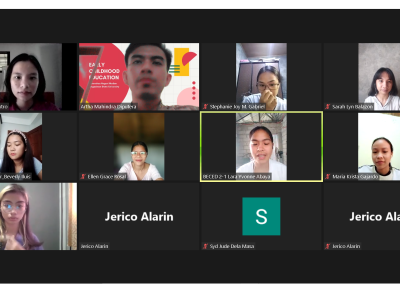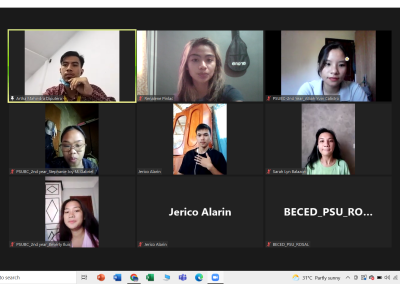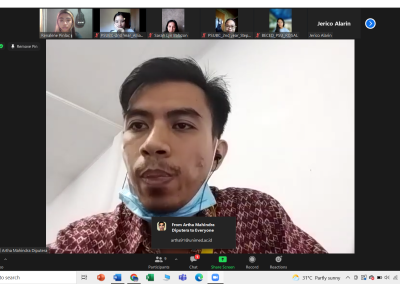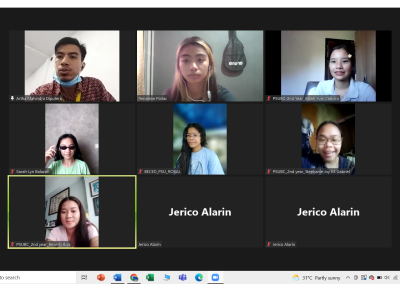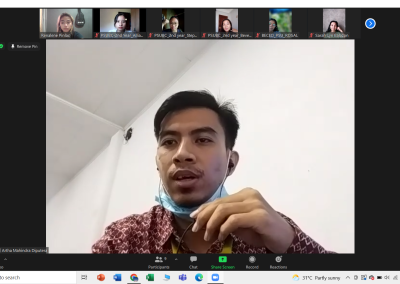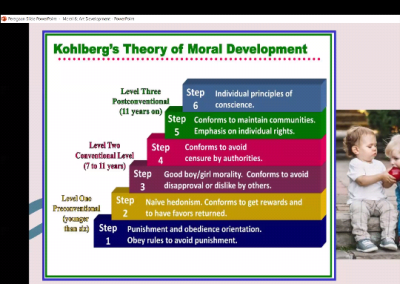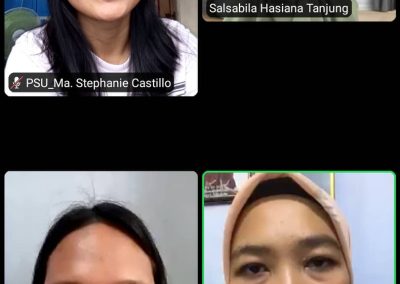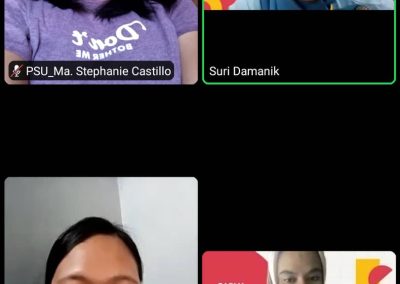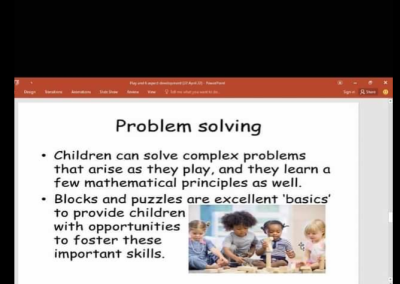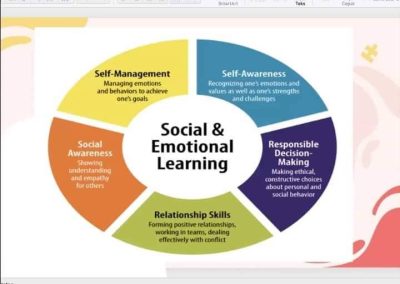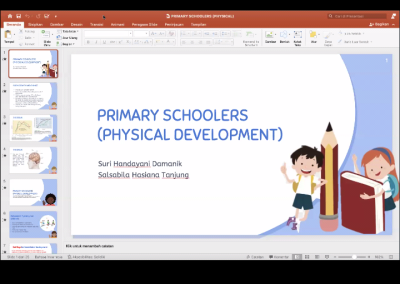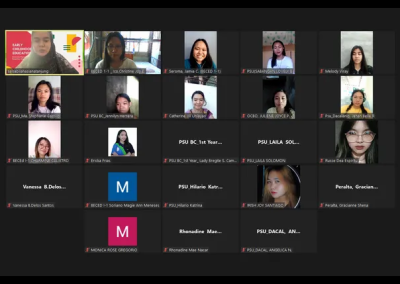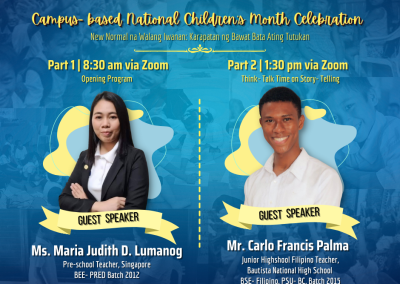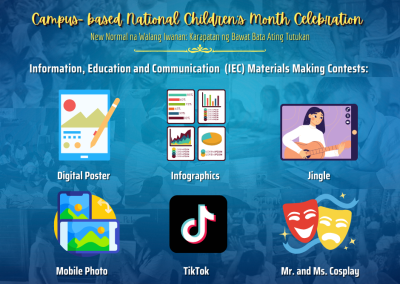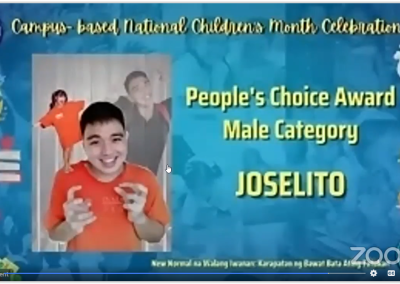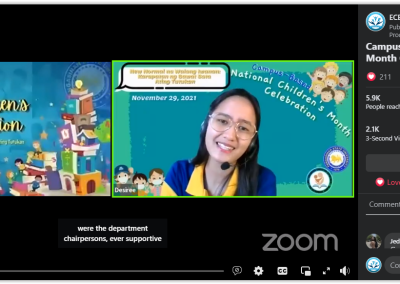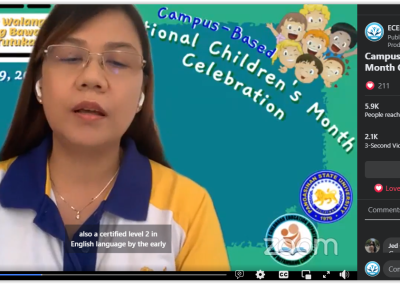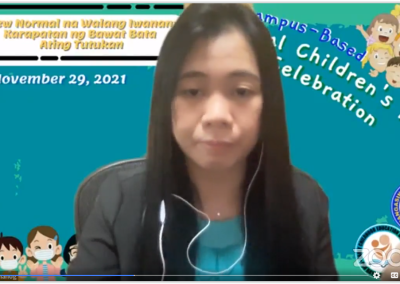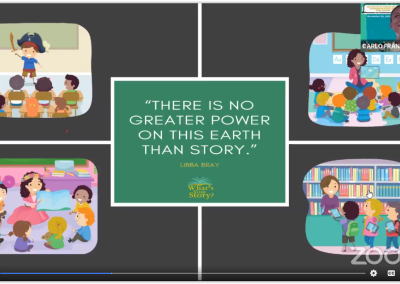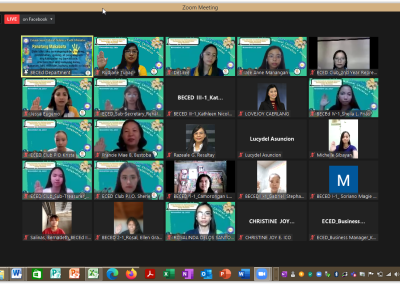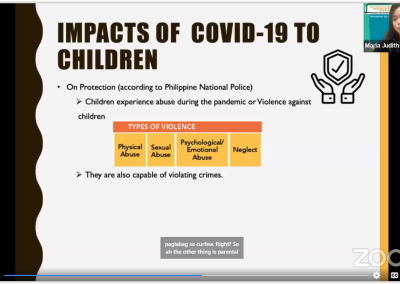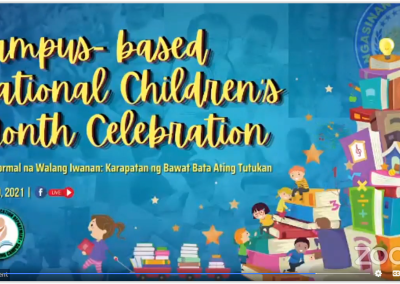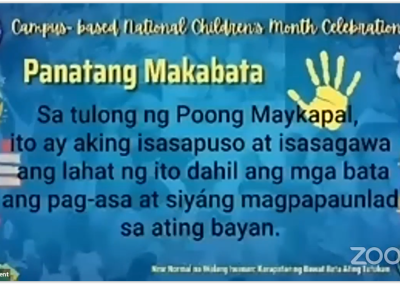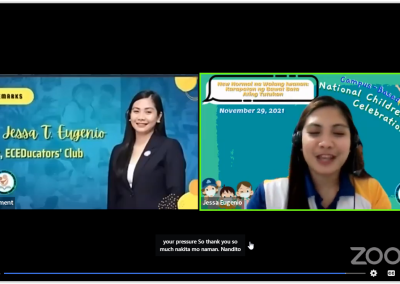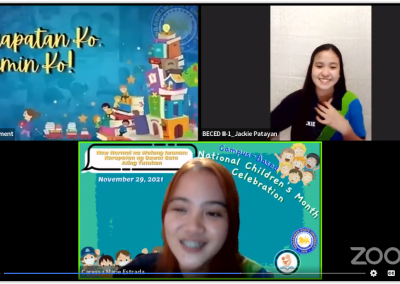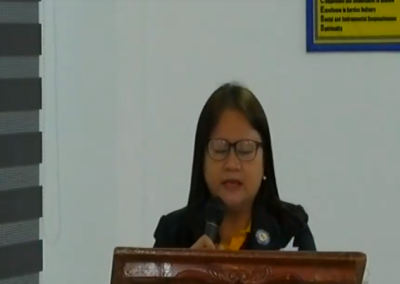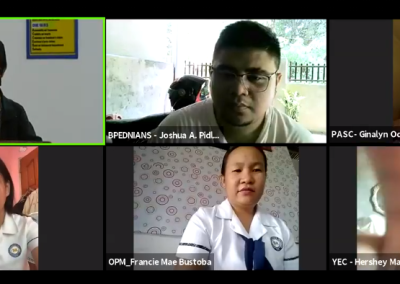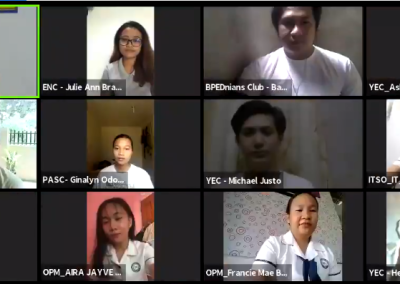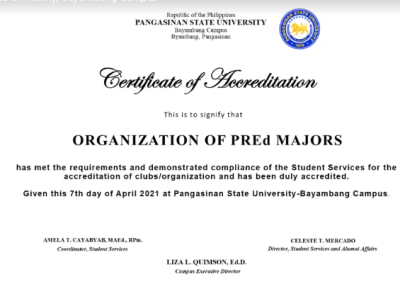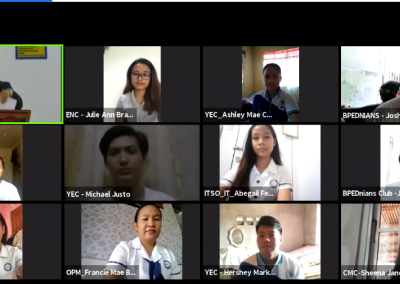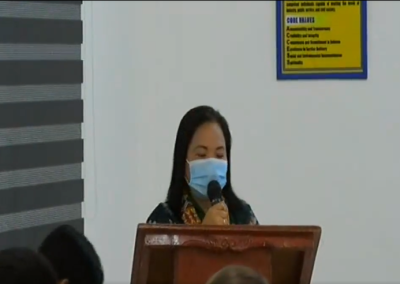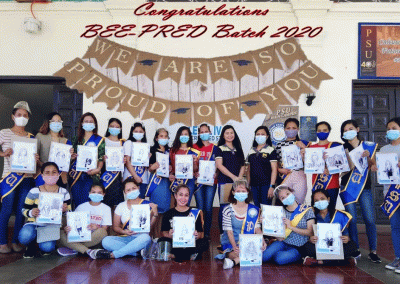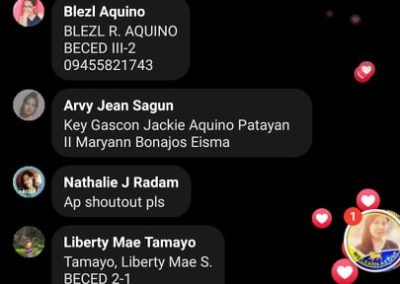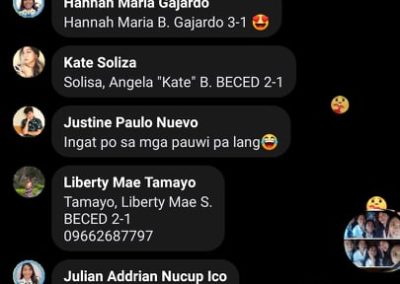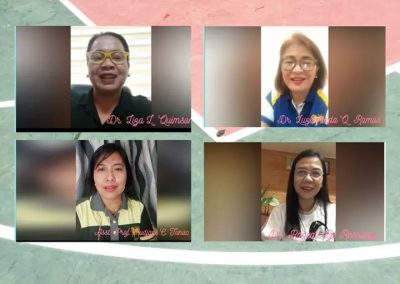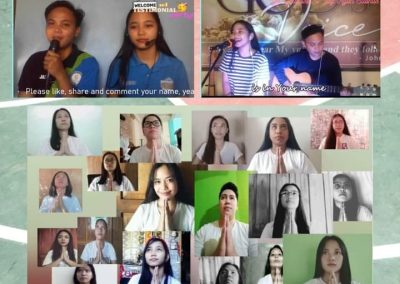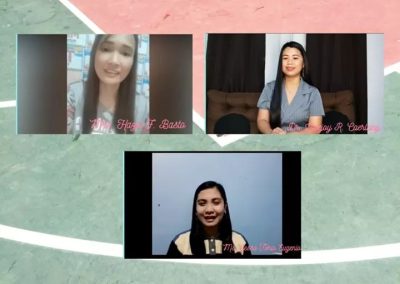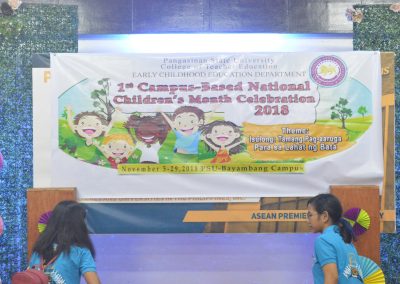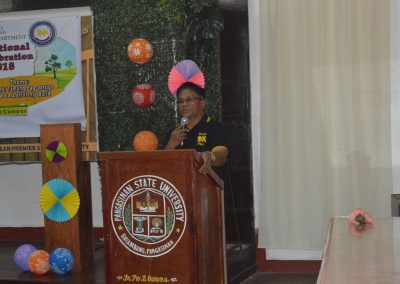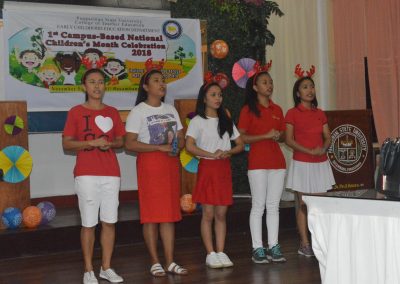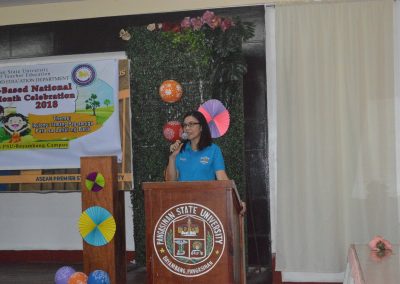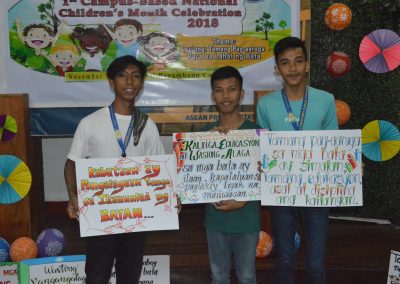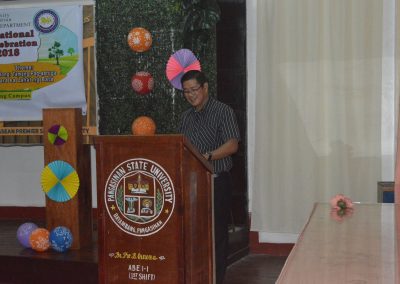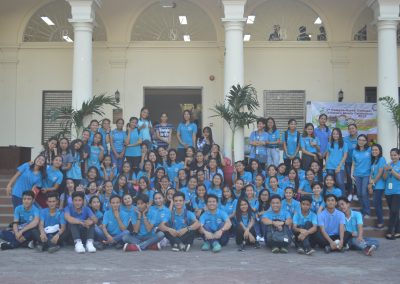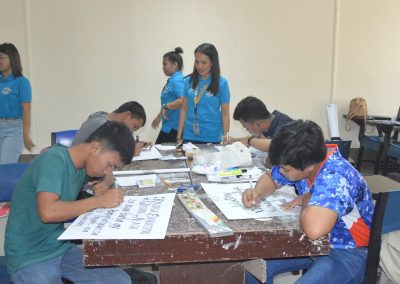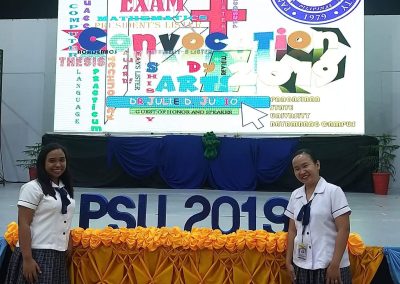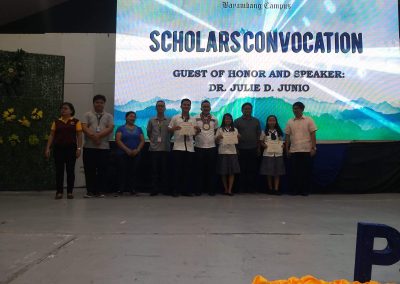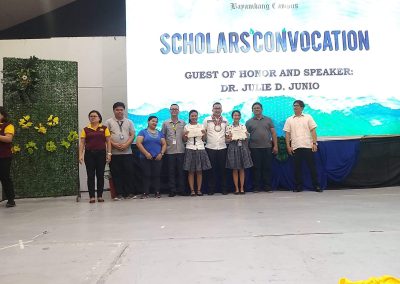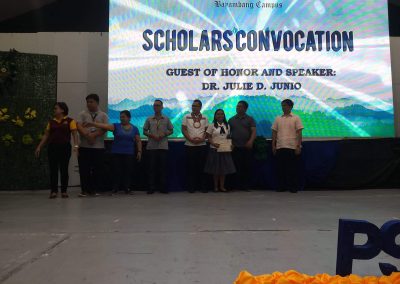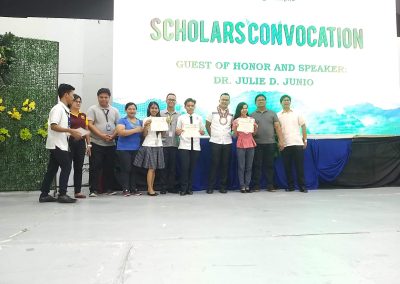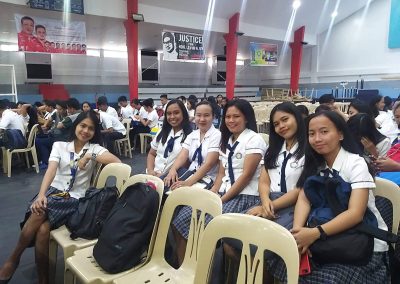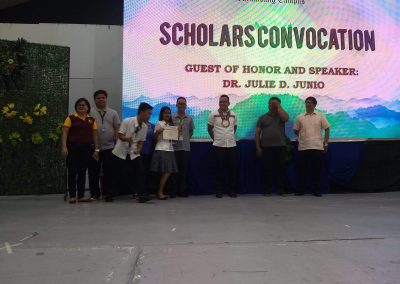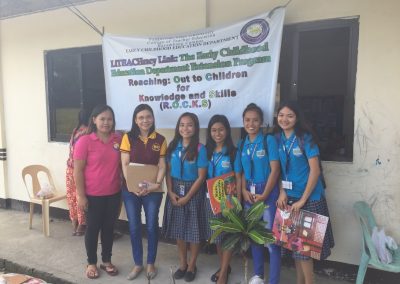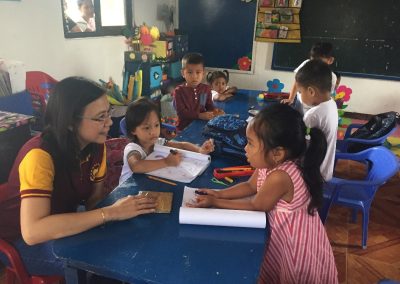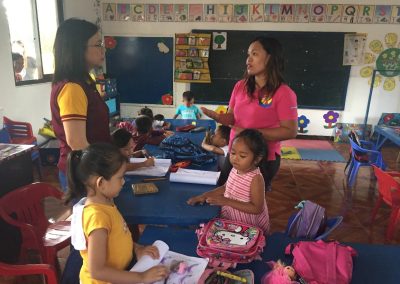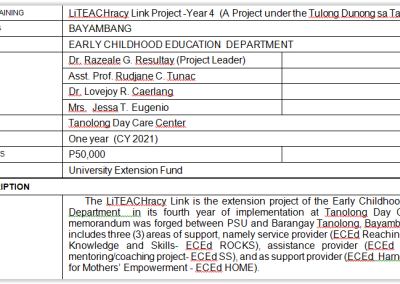
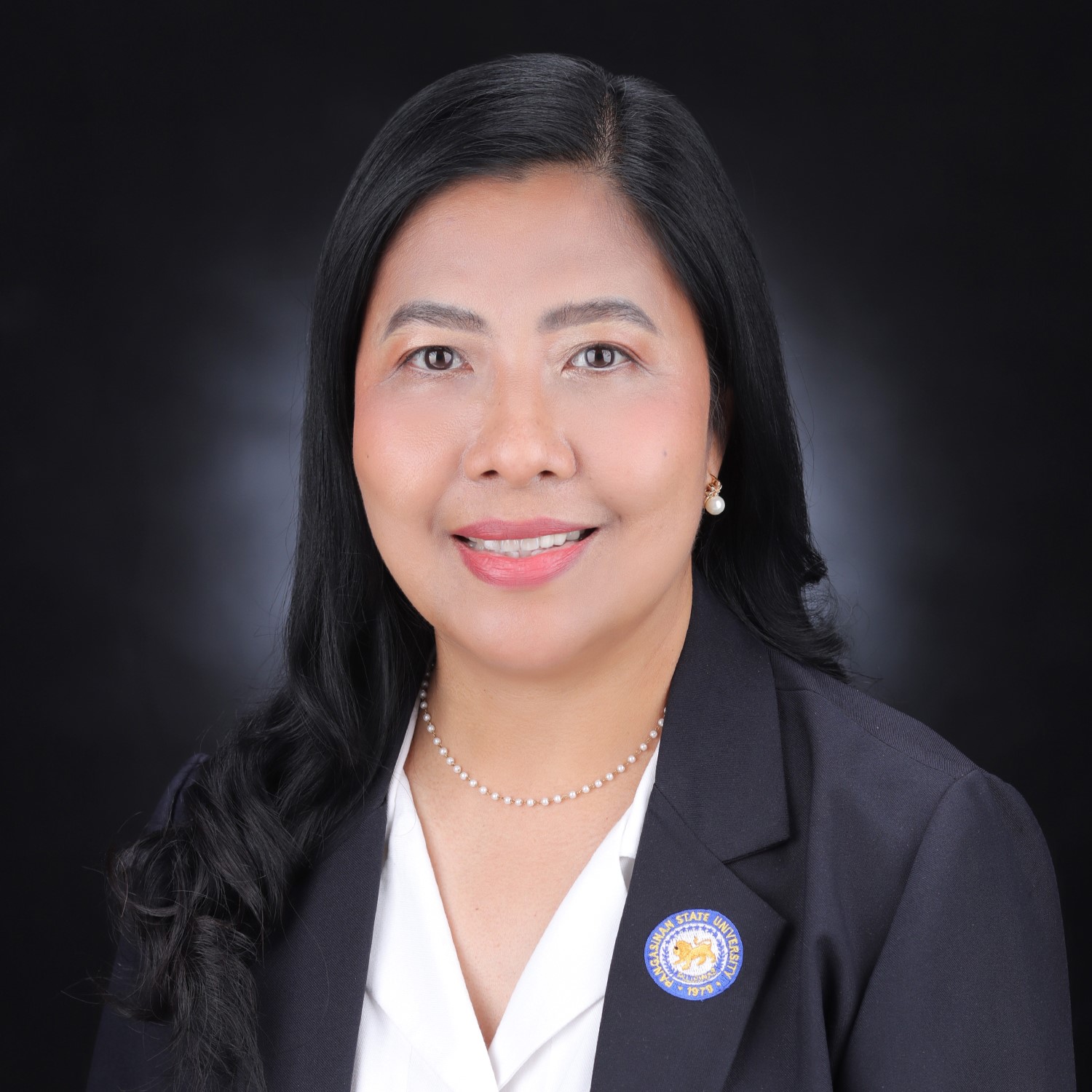
RUDJANE C. TUNAC, EdD
Department Chair
Welcome to BECED Department
Makabatang bati sa lahat! WELCOME TO THE EARLY CHILDHOOD EDUCATION DEPARTMENT!
Changing nomenclature and migrating from Bachelor of Elementary Education major in Pre-Elementary Education (BEE-PRED) program to Bachelor of Early Childhood Education (BECED) program in 2018 continuously sustains its passion and dedication to produce creative and competent early childhood teachers who will provide formal and informal training to young children ages four to eight, and innovate teaching and learning strategies in the name of quality and excellent education.
We sincerely believe that it is appropriate to provide our clients and stakeholders with the finest service possible. Our report, which details our commitment to providing quality service, methods, and outcomes, has been prepared.
During this evaluation, your knowledge, time, and insights will unquestionably help us see where we are currently and where we can go.
Thank you so much, and we hope you enjoy your time with us virtually.
The Bachelor in Early Childhood Education (BECED) in Bayambang Campus is a four-year program that provides students with fundamental understanding and application of the principles of early childhood care and education, as well as experience in the application of these principles.
This program aims to educate individuals to be competent early childhood practitioners working with children from 0-8 years old in various early childhood settings (home, community, school, and workplace). It is aligned with the National Early Learning Framework (NELF), the National Competency-Based Teacher Standards (NCBTS 2017) and the first key stage which is K to 3.
The BECED program is designed to prepare students for teaching and supporting young children’s development. A broad range of employment opportunities are available by fulfilling the degree requirements. Completion of the appropriate program, will quality graduates for employment in government or private institutions
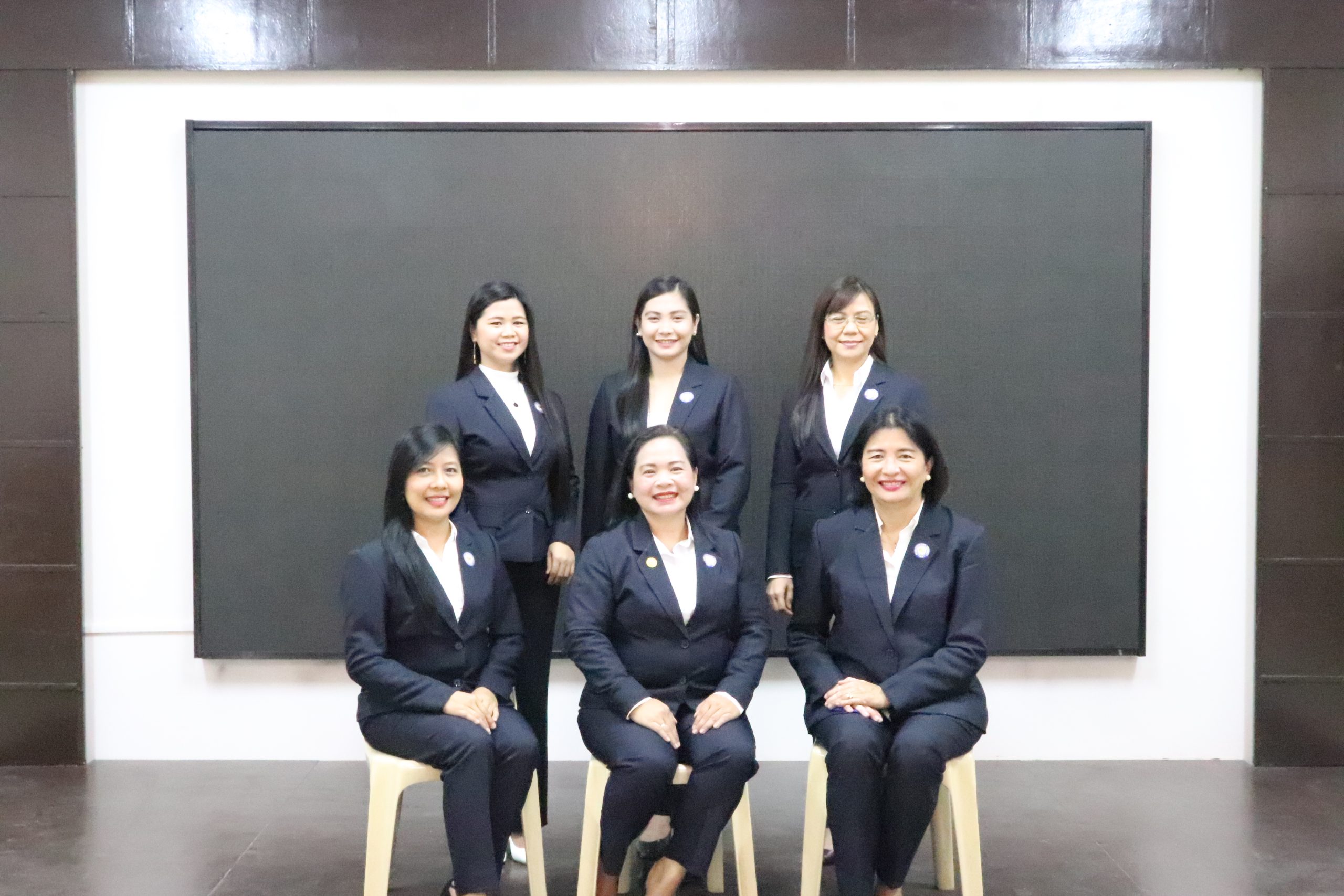
Directory
RUDJANE C. TUNAC, EdD
Department Chair
JOLINA D. CASTILLO, MAEd
Faculty
JESSA T. EUGENIO, PhD
Faculty
RAZEALLE G. RESULTAY, PhD
Faculty
EMPLOYMENT OPPORTUNITIES
The BECED program is designed to prepare students for teaching and supporting young children’s development. A broad range of employment opportunities are available by fulfilling the degree requirements. Completion of the appropriate program, will quality graduates for employment in government or private institutions
The intent of the Information Technology program is to produce graduates who are able to meet the demands of the IT professional in the industry, both local and national area and in the ASEAN region. It has the following objectives: (IT 2018 Curriculum with CHED Contents Notation)
- Undertake projects that show ability to solve complex problems and to work in teams on problems whose solutions lead to significant societal benefits.
- Communicate effectively with diverse stakeholders as well as function appropriately in a team environment.
- Demonstrate ethical behavior as an IT professional and sensitivity to the impact of technology and society.
- Engage in lifelong learning and professional development.
Institutional Learning Outcomes (ILO)
- Demonstrate through institutional mechanisms, systems, policies, and processes which Pare reflective of transparency, equity, participatory decision making, and accountability.
- Engage in relevant, comprehensive, and sustainable development initiatives through multiple perspectives in decisions and actions that build personal and professional credibility and integrity.
- Set challenging goals and tasks with determination and sense of urgency which provide continuous improvement and producing quality outputs leading to inclusive growth.
- Exhibit life-long learning and global competency proficiency in communication skills, inter/interpersonal skills, entrepreneurial skills, innovative mindset, research and production initiatives and capability in meeting the industry requirements of local, ASEAN and international human capital market through relevant and comprehensive programs.
- Display, socially and environmentally responsive organizational culture, which ensures higher productivity among the university constituents and elevate the welfare of the multi-sectoral communities
- Practice spiritual values and morally upright behavior which promote and inspire greater harmony to project a credible public image
Common to All Programs in All Types of School (CTS)
- Articulate and discuss the latest developments in the specific field of practice (PQF Level 6 Descriptor).
- Effectively communicate orally and in writing using Mother Tongue, English and Filipino.
- Work effectively and independently in multi-disciplinary and multi-cultural teams (PQF Level 6 Descriptor).
- Act in recognition of professional, social, and ethical responsibility.
- Preserve and promote “Filipino historical and cultural heritage” (based on RA 7722)
Common to the Discipline (CD)
- Articulate the rootedness of education in philosophical, socio-cultural, historical, psychological, and political contexts.
- Demonstrate mastery of subject matter/discipline.
- Facilitate learning using a wide range of teaching methodologies and delivery modes appropriate to specific learners and their environments.
- Develop innovative curricula, instructional plans, teaching approaches, and resources for diverse learners.
- Apply skills in the development and utilization of ICT to promote quality, relevant, and sustainable educational practices.
- Demonstrate a variety of thinking skills in planning, monitoring, assessing, and reporting learning processes and outcomes.
- Practice professional and ethical teaching standards sensitive to the changing local, national, and global realities.
- Pursue lifelong learning for personal and professional growth through varied experiential and field-based opportunities.
Specific to a Sub-Discipline and a Major (SM)
- Demonstrate high level of content and pedagogical knowledge
- Demonstrate appreciation for diversity
- Manifest collaborative skills
- Demonstrate innovative thinking
- Possess/Apply critical and problem-solving skills
- Advocate for children’s rights, equity, community, nationalism, and democratic ideas
- Pursue lifelong learning
Common to Graduates of a Horizontal Type of Institution as Defined in CMO 46, S 2012 (CHT)
Contribute to the generation of new knowledge by participating in various research and development projects.
Performance Indicators
| Program Outcomes | Performance Indicator |
|
Articulate the rootedness of education in philosophical, socio-cultural, historical, psychological, and political contexts (PO 12) Demonstrate mastery of subject matter/discipline (PO 13) Demonstrate high level of content and pedagogical knowledge (PO 20) |
Apply a high level of content and pedagogical knowledge in the early childhood learning environment. |
|
Demonstrate mastery of subject matter/discipline (PO 13) Facilitate learning using a wide range of teaching methodologies and delivery modes appropriate to specific learners and their environments (PO 14) Demonstrate high level of content and pedagogical knowledge (PO 20) |
Utilize pedagogical approaches that are learner-centered, innovative, inclusive and developmentally appropriate for young learners. |
|
Preserve and promote “Filipino historical and cultural heritage” (PO 11) Develop innovative curricula, instructional plans, teaching approaches, and resources for diverse learners (PO 15) |
Design, implement and evaluate a developmentally appropriate Early Childhood curriculum in different contexts. |
|
Demonstrate mastery of subject matter/discipline (PO 13) Demonstrate appreciation for diversity (PO 21) |
Apply child development concepts and principles to appropriately respond to the needs of diverse learners. |
|
Set challenging goals and tasks with determination and sense of urgency which provide continuous improvement and producing quality outputs leading to inclusive growth (PO 3) Work effectively and independently in multi-disciplinary and multi-cultural teams (PO 9) Preserve and promote “Filipino historical and cultural heritage” (PO 11) Demonstrate appreciation for diversity (PO 21) |
Develop instructional materials that are culturally relevant and developmentally appropriate for young learners. |
|
Effectively communicate orally and in writing using both Mother Tongue and English and Filipino (PO 8) Demonstrate mastery of subject matter/discipline (PO 13) Demonstrate appreciation for diversity (PO 21) |
Adapt or modify existing strategies that address the unique needs of young learners. |
|
Work effectively and independently in multi-disciplinary and multi-cultural teams (PO 9) Manifest collaborative skills (PO 22) |
Build a collaborative relationship between and among internal and external stakeholders. |
| Articulate and discuss the latest development in the specific field of practice (PO 7) | Demonstrate understanding and appreciation of the contributions of other disciplines and professional fields to Early Childhood Education |
|
Demonstrate a variety of thinking skills in planning, monitoring, assessing, and reporting learning processes and outcomes (PO 17) Demonstrate innovative thinking (PO 23) |
Design learning opportunities that promote innovative thinking. |
| Demonstrate innovative thinking (PO 23) | Create and use instructional materials that encourage innovative thinking. |
|
Develop innovative curricula, instructional plans, teaching approaches, and resources for diverse learners (PO 15) Apply skills in the development and utilization of ICT to promote quality, relevant, and sustainable educational practices (PO 16) Demonstrate innovative thinking (PO 23) |
Integrate appropriate technology in designing a curriculum and learning environment that manifest innovative thinking. |
| Possess/Apply critical and problem-solving skills (PO 24) | Design, implement and evaluate a curriculum that demonstrate critical and problem solving skills |
| Work effectively and independently in multi-disciplinary and multi-cultural teams (PO 9) | Create and support a positive and challenging environment |
| Possess/Apply critical and problem-solving skills (PO 24) | Design and implement assessment tools that apply critical and problem-solving skills. |
|
Develop innovative curricula, instructional plans, teaching approaches, and resources for diverse learners (PO 15) Possess/Apply critical and problem-solving skills (PO 24) |
Utilize pedagogical approaches that are learner-centered, innovative, and engage the learners in critical and problem-solving skills. |
| Apply organization and management skills in Early Childhood settings | |
| Possess/Apply critical and problem-solving skills (PO 24) | Practice the ethical and professional standards of the Early Childhood Practitioner |
|
Demonstrate through institutional mechanisms, system, policies, and processes which are reflective of transparency, equity, participatory decision making, and accountability (PO 1)
Act in recognition of professional, social, and ethical responsibility (PO 10) Advocate for children’s rights, equity, community, nationalism, and democratic ideas (PO 25) |
Promote positive values and respect for dignity of individuals. |
|
Exhibit life-long learning and global competence proficiency in communication skills, intra/interpersonal skills, entrepreneurial skills, innovative mindset, research and production initiatives and capability in meeting industry requirements of local, ASEAN and international human capital market through relevant and comprehensive programs (PO 4) Pursue lifelong learning for personal and professional growth through varied experiential and field-based opportunities (PO 19) Pursue lifelong learning (PO 26) |
Practice lifelong learning skills. |
| Contribute to the generation of new knowledge by participating in various research and development projects (PO 27) | Manifests high level of professionalism across all culture in various early childhood context responsive to the demands Industrial Revolution 5.0 |
This program aims to educate individuals to be competent early childhood practitioners working with children from 0-8 years old in various early childhood settings (home, community, school, and workplace). It is aligned with the National Early Learning Framework (NELF), the National Competency-Based Teacher Standards (NCBTS 2017) and the first key stage which is K to 3.
Department Activities
2022 PSU students to Universitas Negeri Medan (UNIMED), Indonesia
Thirty (30) first year Bachelor of Early Childhood Education students, and two (2) faculty members of the ECED department took part as student/faculty exchange between Pangasinan State University-Bayambang Campus, College of Teacher Education, Early Childhood Education, and the Department of Early Childhood Education, Faculty of Education, Universitas Negeri Medan (UNIMED), INDONESIA. Classes were held in synchronous instructional deliver mode via Zoom or Google Meet for three months, from April to June 2022. SIPDA from UNIMED was utilized as the Learning Management System for this activity. The course, Child Development Psychology was handled by UNIMED lecturers, Ms. Suri Handayani Damanik and Ms. Salsabila Hasiana Tanjung. For the course, Culture Based Play in Early Childhood, Dr. Peny Husna Handayani, and Dr. Winda Widya Sari handled them.
Meanwhile, twelve (12) second year Bachelor of Early Childhood Education students took part as student exchange between Pangasinan State University-Bayambang Campus, College of Teacher Education, Early Childhood Education, and the Department of Early Childhood Education, Faculty of Education, Universitas Negeri Medan (UNIMED), INDONESIA, with the subject, Assessment for Early Childhood. They were handled by Prof. Dr. Anita Yus, and Mr. Artha Mahindra Diputra.
Global partnerships are key to virtual exchange program success. Bachelor of Early Childhood Education first and second year students, and two faculty members of the ECED department made international education accessible by participating in the 2022 virtual student/faculty exchange experience through digital technologies and platforms that created encounters with new ideas, cultures, experts, academics and students from the Universitas Negeri Medan (UNIMED), INDONESIA.
2021 Virtual Campus-Based National Children’s Month
Early Childhood Education Department, in unity with the country’s 2021 National Children’s Month Celebration with the theme: “New Normal na Walang Iwanan: Karapatan ng Bawat Bata Ating Tutukan,” conducted the virtual event on November 29, 2021, with outstanding guest speakers who are both PSU-Bayambang campus alumni.
2021 Virtual Induction Program
Virtual Testimonial Party for Graduating bee-pred class 2020 and Virtual Welcome Party
Tribute for two in one virtual event was held on November 24, 2020. Acclimating to the traditional Testimonial Party in honor of the graduating Bachelor of Elementary Education-Pre-elementary Education class of 2020, BECED first year students were likewise given precious moments to celebrate with their seniors before they bid farewell to their alma mater.
2018 1st Campus-Based National Children’s Month
Early Childhood Education Department leads in the annual event for the Filipino Children to celebrate and recognize them as the most valuable assets of the nation and to emphasize the importance of their role within the Filipino family and the Philippine society.
Republic Act No. 10661 declares every November as the National Children’s Month (NCM) with the Council for the Welfare of Children (CWC), Department of Social Welfare and Development (DSWD) and the National Youth Commission (NYC) as lead agencies. This declaration commemorates the adoption of the Convention on the Rights of the Child by the United Nations General Assembly on 20 November 1989 and seeks to instill its significance in the Filipino consciousness.
Year 2018 marks the 26th year of the National Children’s Month celebration in the Philippines and the recent launch of the Philippine Plan of Action to End Violence Against Children (PPAEVAC), 2017-2022 which translates the findings of the 2015 Philippine National Baseline Study on Violence Against Children (NBS-VAC) into specific action.
The NCM focus and theme, ISULONG: TAMANG PAG-AARUGA PARA SA LAHAT NG BATA” are aligned with the key strategies of PPAEVAC to end violence against children in the Philippines
2019 Scholars’ Convocation
BECED students convene to accept the fruit of their hard work that has paid off. This is a proclamation of their honor as “Tulong-Dunong” scholars, CHED, District Scholarship from Rep. Rachel Arenas, and others from the Local Government of Bayambang
Department Extension Activities
“Para sa bata, basta bata, bawat bata.” The ECED Department dedicates its passion to uplift young children’s welfare in all ways possible. Through the LiTEACHracy Link, an extension project of the department implemented at Tanolong Day Care Center after a memorandum was forged between PSU and Barangay Tanolong, Bayambang, Pangasinan, it vows to include three (3) areas of support, namely service provider (ECEd Reaching Out to Children for Knowledge and Skills- ECEd ROCKS), assistance provider (ECEd Support System, a mentoring/coaching project- ECEd SS), and as support provider (ECEd Harnessing Opportunities for Mothers’ Empowerment – ECEd HOME).

